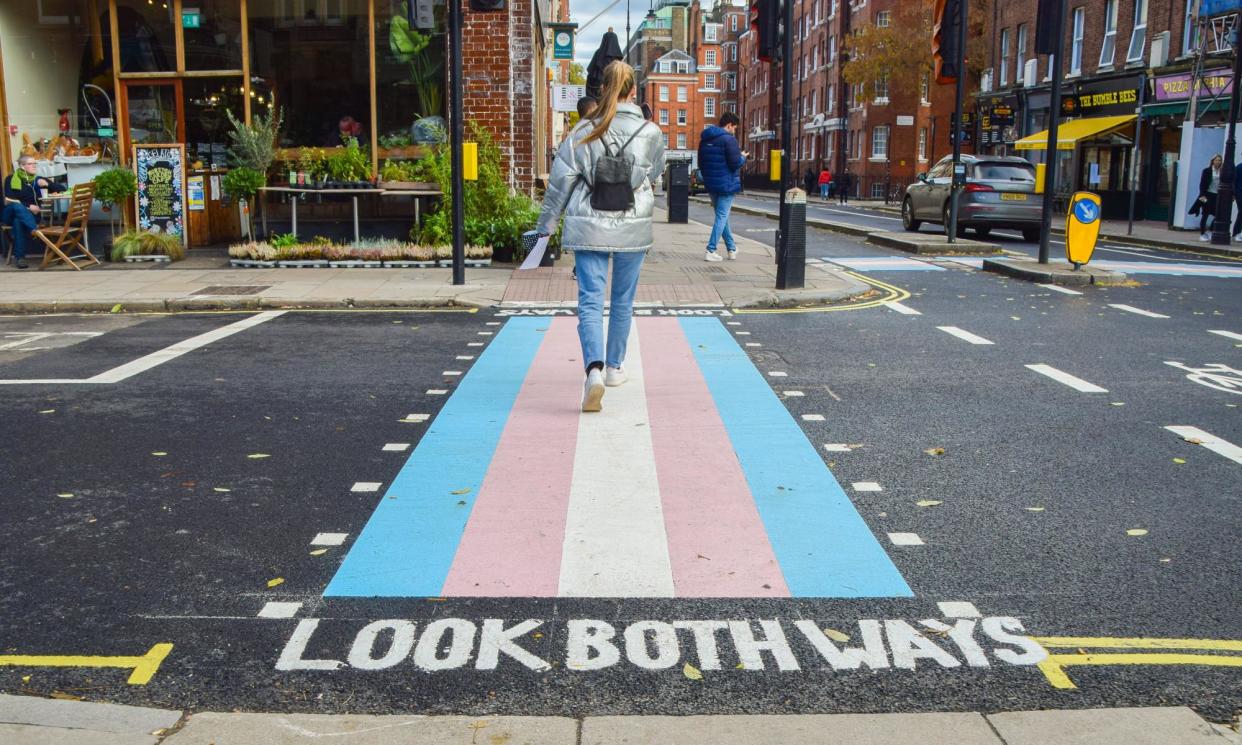Mother criticises ‘agenda from above’ after release of Cass report

While the Cass report’s 400 pages will be pored over and debated, one thing is certain – young trans people face an anxious future.
The mother of a 17-year-old trans girl who was a patient at the now-shut Gender Identity Development Service (Gids) at the Tavistock and Portman NHS Foundation Trust said she had initially welcomed Cass’s inquiry, but had been left “disappointed”.
She had believed the Tavistock was “fundamentally not fit for purpose” as a specialist clinic set up to handle a small number of patients, but the “hysterical environment” surrounding the report was leading to young people losing out on healthcare.
The closure of the Tavistock left her child’s care up in the air. “We were wondering what the hell was going on. In fact, we heard nothing – the first letter we got from the NHS about what was going on was a week after Gids closed.”
She described being “shocked as hell” when her child began saying she was a girl at the age of eight in 2015. A charity recommended she be referred to the Tavistock, “on the basis that it would either go away or it wouldn’t – and it didn’t go away”.
“[Because she was autistic] they took everything really slowly. Really, really slowly.”
“There had been frustrating times at the beginning when I felt that we were a little bit on trial as parents, as if they were looking for evidence that it might be something we dreamt up,” she said.
“[I thought] do we really come across as the kind of parents who are absolutely delighted to have a transgender child? We might be the kind of parents who’d be absolutely willing to support our transgender child, but in an ideal world I would much rather my child was growing up in a way in which she wasn’t sticking out like a sore thumb and potentially going to end up dead.”
Her daughter’s gender dysphoria diagnosis finally came in 2022, six years after they first saw a clinician. She began puberty blockers a year later.
“Puberty blockers have been really good for her. As she entered puberty, she was really, really dysphoric about her shoulders, her facial hair growing her voice deepening. She was very distressed by it and very sad.”
Related: ‘Children are being used as a football’: Hilary Cass on her review of gender identity services
The woman said the Cass report represented “an agenda from up on high that things need to be more difficult”. “It’s hard enough as a parent without having the entire society or media pointing at transgender people as if they’re some aberration or as if they threaten us.”
Amelia Hansford, a 25-year-old transgender journalist, agreed. Hansford was herself referred to Gids as well as receiving some private treatment. She said younger people were in a worse position now than she had been when she sought help.
Related: What are the key findings of the NHS gender identity review?
“I think if I was 15 or 16 years old and growing up in the UK right now, with feelings of gender dysphoria … it’s just such a different time. And I think it’s so dangerous to be a trans person in a lot of different ways.”
Hansford said trans healthcare was undervalued by society when you considered how life-changing it can be. “I would say that, for me, going on [hormone therapies] has been the single greatest thing that has ever happened to me,” she said.
“It’s effectively changed my life. And I think it’s just important to emphasise that fact, that it was built out of necessity and it is just the most important thing I think I’ve ever done in my life.”
Hansford welcomed some of Cass’s recommendations, such as the creation of regional centres, rather than having one in London.
“I think that is a step in the right direction,” she said. “However, you have to think about implementation. If we’re already seeing issues with the regional centres that have opened up in early April … the expertise of the people that are working there. If these regional centres are not up to snuff, then all of this is going to be a moot point, right?”
One 18-year-old trans man who had been prescribed puberty blockers at a private clinic before moving on to gender affirming hormones said he was disappointed in how difficult it would be for younger people to access them. He sought help from a private clinic because of the long waiting lists at the Tavistock.
“Puberty blockers are just supposed to be a pause. And that’s all it was for me,” he said, adding that they gave him time to think. “If I hadn’t gone on the blockers, I wouldn’t pass [as a male].”
A notion that someone out there was convincing young people to become trans, which “no one in their right mind” would do, meant it was becoming harder for trans youngsters to access puberty blockers, he said.
But he said: “I think in a world where you’ve got to pick your battles, (puberty blockers) wouldn’t be the battle that I picked, in my opinion.”
What would it be? “Waiting lists.”


